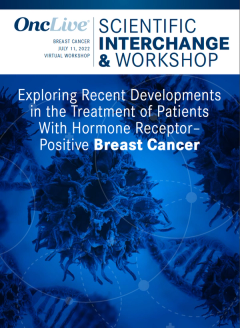
Dr. Litton on Remaining Questions in ESR1-Mutated Breast Cancer
Jennifer Keating Litton, MD, discusses research areas of interest in ESR1-mutated, endocrine receptor–positive, HER2-negative breast cancer.
Jennifer Keating Litton, MD, faculty, The University of Texas Graduate School of Biomedical Sciences, vice president, Clinical Research, Department of Chief Scientific Office, The University of Texas MD Anderson Cancer Center, discusses research areas of interest in ESR1-mutated, endocrine receptor–positive, HER2-negative breast cancer.
Though ESR1 mutations have been found to potentially increase resistance to aromatase inhibitors, additional data is needed to determine the best treatment path for a patient with an ESR1mutation who is responding to an aromatase inhibitor, Litton says. If a patient is found to have an ESR1 mutation but is responding to an aromatase inhibitor, a change to another therapy is not warranted, based on currently available data, Litton adds.
However, ongoing studies are evaluating if patients harboring an ESR1 mutations can benefit more from switching to another therapy, such as fulvestrant (Faslodex) or another selective estrogen receptor degrader, Litton says. Additionally, the presence of circulating tumor cells could also play a larger role in determining treatment as agents continue to evolve, Litton concludes.








































